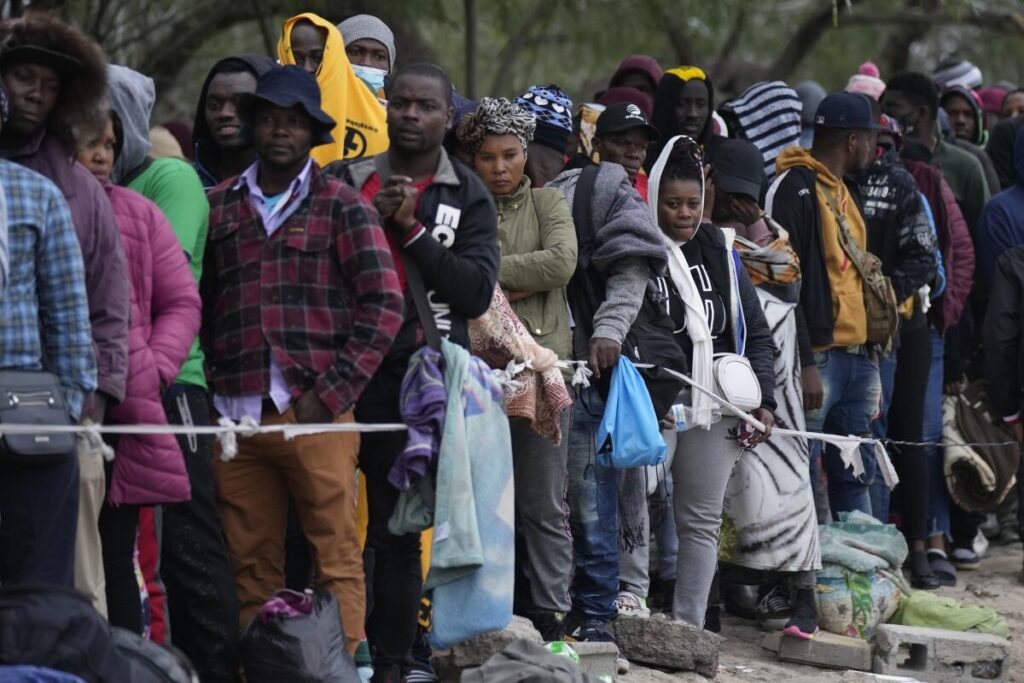
More than 260 charter flights believed to be carrying migrants from Haiti have touched down in Nicaragua in recent months, according to flight data and experts in the region, adding to a historic crush of migration by people hoping to reach the U.S.
The flow of migrants has left the Biden administration and Latin American leaders scrambling for solutions, and experts say it’s also being used as leverage by governments like Nicaragua’s to get concessions from the U.S. amid tightening sanctions.
“The Ortega government knows they have few important policy tools at hand to confront the United States, … so they have armed migration as a way to attack,” said Manuel Orozco, director of the migration, remittances and development program at the Inter-American Dialogue. “This is definitely a concrete example of weaponizing migration as a foreign policy.”
Nicaragua has long been used as a migratory springboard for people fleeing struggling Caribbean nations like Cuba and Haiti as well as countries as far away as Mauritania in Africa, because it is one of the few countries that doesn’t require visas for many of them to enter.
Such flights from Cuba were already gaining steam late last year amid a historic exodus from the island. In August, Orozco said the Nicaraguan government allowed charter airlines to carry out the flights.
The charter airlines have flown as many as 31,000 people out of Haiti, which would represent nearly 60% of the Haitians arriving to the U.S. border, Orozco’s data shows. Over the same period, some 172 flights have carried 17,000 people from Cuba to Nicaragua.
The AP spoke to three Haitian migrants who were aboard the charter flights, who said they doled out thousands of dollars to leave the poorest country in the hemisphere in hopes of reaching the United States. Orozco said most tickets range between $3,000 and $5,000 a seat.
Things came to a head this weekend, when local media reported that in 48 hours, 27 charter flights from Haiti had landed in Nicaragua. The mounting number of flights comes at a strategic moment for Ortega’s government, said Enrique Martínez, a spokesperson for the dissident group Platform for Democratic Unity.
As Venezuelans make up a big portion of those arriving to the U.S. border, the Biden administration recently negotiated a loosening of sanctions on Venezuela’s government – which have deepened the country’s economic crisis – in exchange for promises of carrying out democratic elections.
Ortega may be hoping for a similar outcome, Martínez said.
The U.S. government and European nations have ratcheted up sanctions on members of Ortega’s family and administration in recent years as he has grown more repressive. His government has driven hundreds of thousands of Nicaraguans to flee abroad and shut down thousands of non-governmental groups and universities in an effort to stifle dissent.
“Ortega is going to use this migration issue to say to the United States that we’re the ones in control,” Martinez said. “ And if they want to stop this, they’re going to have to negotiate.”
Ortega’s government did not respond to an emailed request for comment on the charter flights and allegations they were being used as leverage. Aviation authorities in Haiti did not respond to a request for more information.
Stéphanie Armand, a spokesperson for Sunrise Airways, which data show carried out at least 15 flights over the past week, said the company doesn’t sell tickets to Nicaragua, but rather is contracted by “third parties” to carry out the flights. She would not elaborate on who the third parties were.
Asked if the carrier’s services are being used by people smugglers to carry out migration to the U.S., Armand said the company checks passengers’ documents before boarding.
“As an airline and aircraft operator, we have no information about the intentions of passengers we are carrying,” Armand wrote. “If passengers comply with the country’s entry requirements and are admitted, it is for the authorities, not the airlines, to follow up on their status.”




